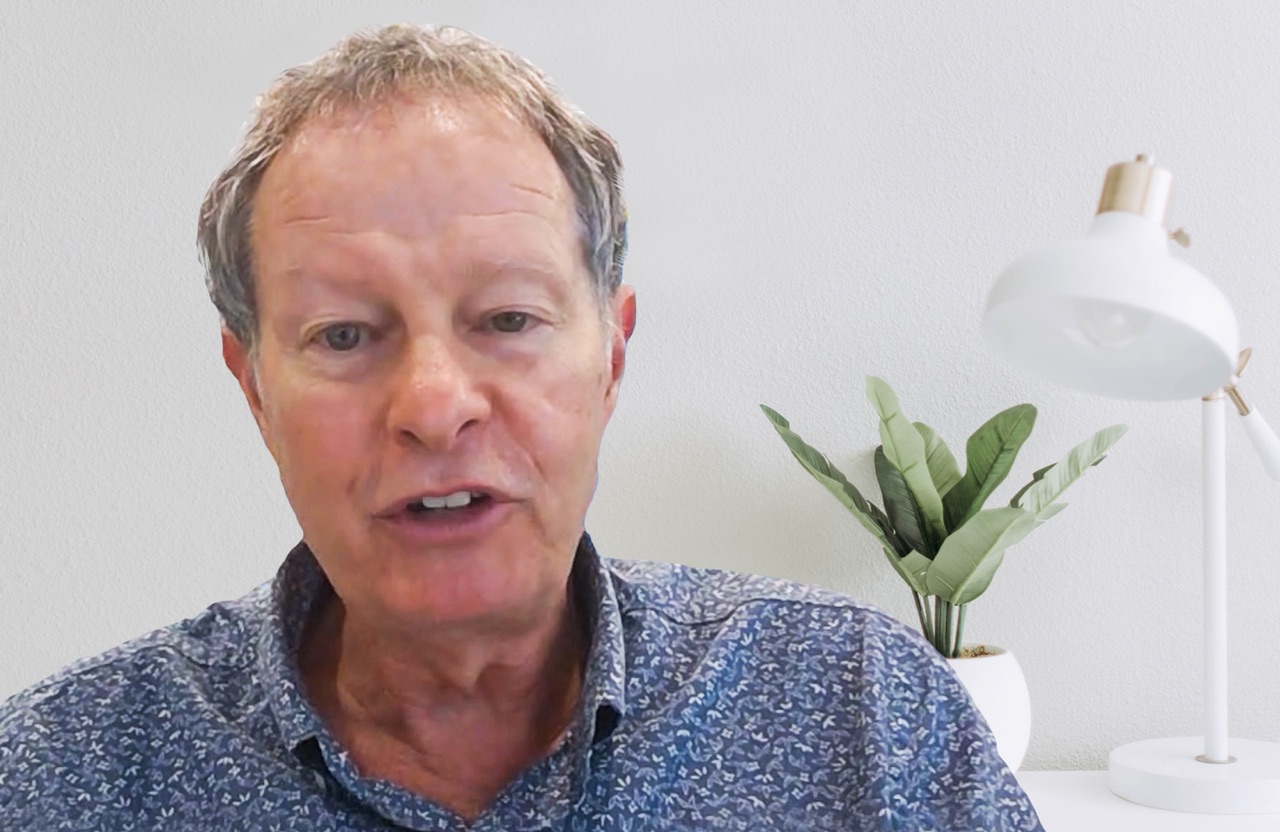What issue can we solve for you?
Type in your prompt above or try one of these suggestions
Suggested Prompt


The Brave Pursuit
How Whole Foods Digitally Transformed With Amazon
How Whole Foods Digitally Transformed With Amazon
John Mackey, CEO of Whole Foods, talks to Publicis Sapient about his company’s merger with Amazon, adapting to COVID-related shifts, and setting a new ethical framework for leaders
John Mackey, chief executive of Whole Foods Market, believes that when it comes to leadership, all you need is love.
Well, love and…purpose. Integrity. And an ability to think long term.
In his new book, “Conscious Leadership: Elevating Humanity Through Business,” (Sept. 15, Portfolio/Penguin Random House), a follow-up to his 2013 bestseller, “Conscious Capitalism,” Mackey describes nine distinguishing characteristics of a conscious leader, such as constantly evolving the team, and innovating and creating value.
Mackey, who has led Whole Foods for 42 years, recently sat with Publicis Sapient to discuss the book and how his company advanced technologically since it entered what he calls a “win-win-win marriage with Amazon.”
Publicis Sapient: In 2013, you wrote “Conscious Capitalism.” Why did you decide to follow up now with “Conscious Leadership”?
John Mackey: Conscious leadership is one of the pillars of “Conscious Capitalism.” Over the last several years, I got a ton of questions when I’d be on the road about conscious leadership. It’s like conscious capitalism gives a theory, but people want to know how can they be more conscious leaders. There was clearly a demand for more depth than we went into in the book. So, “Conscious Leadership” is fulfilling that request.
PS: You write about having a sense of purpose. When you look back to when you first founded Whole Foods, how has your own sense of purpose and identity as a leader evolved?
Mackey: In some ways the purpose of Whole Foods has evolved since we started the company. When we started, I was just 23, 24. Renee [Lawson Hardy, Whole Foods co-founder] was 19, 20. We just wanted to sell healthy food to people. The higher purpose of Whole Foods is to nourish people on the planet. That’s exactly what we were doing 42 years ago. But we have a bigger playing field. We just had one store originally. We didn’t have any sense that we were going to have stores all over the United States and that we were going to have 100,000 people working for the company, millions of customers, and this impact that we were going to have. That all came later. What happened over time as we grew as human beings and we became more conscious, we realized that besides the food mission of the company, we have certain responsibilities and obligations to all of our stakeholders -- our customers, our team members, our suppliers, our investors. The communities that we’re part of. The environment that we’re part of. We ended up creating foundations like the Whole Planet Foundation which does microcredit loans which helped over 5 million people -- mostly women, almost all ethnic minorities all over the world. Our Whole Kids Foundation gives away salad bars and school gardens to thousands of schools around the U.S., U.K. and Canada. So our ability to impact has grown as the company has grown. But it’s still rooted in that original purpose of just trying to sell healthy food to people.
My own sense of purpose has grown as I’ve matured and realized that I could have a bigger impact on the world. I would say conscious capitalism, conscious leadership fall into that same sense of purpose. Why did I write these books? It’s not for the money – books don’t pay off that much for the time that you put into them. But because I wanted to get these ideas out there. I wanted other business people and other entrepreneurs to think about this differently and evolve their leadership styles. So, my sense of purpose has grown as I’ve grown as a human being.
PS: What in recent years has influenced you in becoming the conscious leader that you are today?
Mackey: Three-and-a-half years ago, we had our shareholder activist Jana Partners try to take over our company, take over our board of directors, replace management, and sell the company off to the highest bidder. That directly led to us merging with Amazon. So that’s clearly the biggest event of the last 5 years. How it’s affected me as a conscious leader is that I really sought the win-win-win solution. I talk in that chapter in the book about how the Amazon marriage was a win-win-win solution for all the stakeholders of Whole Foods. That was the right thing to do, but it wasn’t obvious initially. We were confused about what our alternatives might be: Maybe we should take the company private. Maybe we should sell it off to someone like Warren Buffett, but he wasn’t interested. Maybe we should fight Jana and see if we could beat them. There were a lot of different alternatives that we thought about. But in a flash of insight one day, I realized the best move for Whole Foods was to merge with Amazon. We contacted them, and they were very interested. We came to terms very quickly as we had a strong overlap in our sense of purpose and vision for the business. So my sense of purpose has evolved. I’ve become more conscious. And now that we’ve become part of Amazon, I’ve had some growth accelerants because Amazon has taught me and Whole Foods a lot of things we didn’t realize before and has made our company better.
PS: How has the win-win-win marriage changed you personally?
Mackey: For one thing, Whole Foods – I mean, we were independent for 37 years. Now we’re part of a bigger company. Whole Foods was a very big company in and of itself. So for a long time I didn’t report to anybody. I didn’t have a boss, other than I reported to the board of directors quarterly. But now I have a boss at Amazon that I report into on a much more regular basis. That took a little bit of getting used to, but it hasn’t been that big of a transition. I’ve always been a team player. It’s a little bit harder to make decisions than it used to be. A lot of times, Amazon wants me to check in with them on the big decisions whereas before, I wouldn’t have had to check in with anybody. I could have acted. But all in all, Amazon has been a great partner for Whole Foods. They’ve respected our culture. They haven’t tried to change us other than to help us become a better company than we were prior to the merger.
PS: How has Amazon helped Whole Foods advance technologically?
Mackey: There are some things I can’t talk about because a lot of the big advancements are going to happen in the next few years [laughs]. There are some amazing technological innovations that are going to be released in the next couple of years, including Whole Foods, that will change grocery shopping as we know it. But in the short run, of course, we’ve seen on the delivery capabilities, if you’re a Prime member you can get free delivery from Amazon. That has truly exploded. Part of it is we’ve been transitioning over to Amazon’s systems, and now that they’re in particular doing their own stores, they’re building new technology platforms that the new Amazon stores and Whole Foods Market will rest on. The best technology is yet ahead, and I promise you it will be worth the wait.

“I love the digital transformation of the world. It’s the biggest event of my lifetime, without a doubt. I started WholePeople.com. I was early on the whole Internet phase, although we had to abandon that business when the first Internet crash started. I always saw the potential. Honestly, it’s why I wanted to merge with Amazon.”
John Mackey , CEO of Whole Foods
PS: Where do you still see opportunities for Whole Foods Market to transform digitally?
Mackey: We just in the last few months have gotten Whole Foods Market on Amazon. We have a catalog at Amazon. That took a long time to make that digital transformation, but that’s been a big increase in our sales. It’s made it easy for people to order from Whole Foods, just on Amazon. It didn’t require a separate Whole Foods app, for example. Getting on Amazon’s platforms is really a big task for us – we have a different point-of-sale system that we will have to transition to over time.
The big technology at Amazon – I mean, you’ve seen the Amazon Go stores where people just walk in, walk out -- I think that’s going to be a technology that will spread over time and will eventually be in Whole Foods Market stores, which totally transforms grocery shopping because we know you’re in the store, the cameras are watching what you’re buying, and you just walk out with it. It’s the ultimate convenience. Nobody likes to wait in line. So you take the line-waiting out, that’s going to transform everybody’s lives. Some people will continue to order as a transaction online. So the omnichannel is this big idea. People always ask me, where do you think it’s going to go? I say, it’s really simple. What’s going to happen over time is people are going to get whatever food they want, whenever they want it, wherever they want it, at the price that they’re willing to pay. That’s what’s going to happen. The consumer’s going to be the queen and the king, and food’s going to be coming their way, however they want it to.
PS: Leading up to the merger in 2017, Whole Foods Market was thriving and growing at a fast pace. Are there situations that are challenging now?
Mackey: It’s different and of course there are always challenges. The biggest challenge though in 2020 is COVID. It swamps everything else. Think about it. I’m sitting in my corporate office here above one of our flagship stores. But in an office that 1,000 people can work in, there are maybe 60 people here today. I haven’t seen an Amazon person, in person, since early March. All my communications are via Chime, their internal secure video system. It’s bizarre, actually. That’s been such a big challenge. How do you run a company virtually? We’re trying to figure out how to do that. It’s hard for me because I like to be in the stores. I like to connect with people. Those stores are energizing to me personally because I say the life of the company is in the stores, not in the offices. I’m going to break out sometime this fall, even if I have to wear a mask and social distance. I want to start traveling into our stores again.
So there are lots of challenges. I’m not going to get into the details of any challenges we might have with Amazon because in the big scheme of things, those challenges are minor compared with the benefits we have. A merger is like a marriage. If you’re in a long-term relationship there are obviously benefits, or you wouldn’t be in the relationship. But is it perfect? Do you have fights? Do you disagree about certain things? Well yeah, you do, of course. That’s life. But you work it out. You talk it through. Best ideas win.
PS: This COVID pandemic has had an enormous impact on the economy. The grocery sector has experienced a tidal wave of change. What challenges did you face as CEO of Whole Foods and how did you lead the company through it?
Mackey: The main thing to realize is we’re faced with this challenge and our first and most important thing was, how do we keep our customers and our team members safe? Whole Foods has been recognized as one of the safest food retailers out there. We’ve been acknowledged in several different polls and surveys. We were very early in terms of getting people masked up. Getting our customers to wear masks, to have deep cleaning, to do testing, to do temperature checks. It hasn’t been perfect, but Whole Foods has done far better than the country as a whole in terms of COVID infections, COVID hospitalizations, COVID deaths. But that’s been our primary goal: how do we keep people safe? Our higher purpose is to nourish people on the planet, so nourishing also means keeping people from harm to the greatest extent possible.
And then we had a supply problem because everything shifted. The reason there’s been a big gain in the supermarket business is because people aren’t eating out. They’re cooking at home more. So we saw an explosion -- I’ll tell you, meat and seafood sales just exploded in our company. They’re at all-time record highs every single week. It’s incredible. But prepared foods – we had to shut down our salad bar, shut down our hot bars, no self-service stuff at all. Our prepared foods just collapsed. They just disappeared. Plus offices, which would be generating lunchtime traffic, for the most part at those offices everywhere, people are working from home. They’re working remotely. So we don’t have that same kind of lunch traffic we used to get. With meat and seafood, it was a challenge to get supply in there. We’ve had more out-of-stocks on a supply basis because people’s demand for products just went through radical shifts. The market adapts to that but not instantaneously. It takes a little time for those signals to change, particularly in food. You’ve got to raise it and grow it. So there can be a lag period. The good news is, most of those out-of-stocks are a lot better today than they were in March or April.
PS: At this time in our society, what do you see as cultural imperatives that business leaders need to address?
Mackey: It’s conscious leadership and in the book, we make a big emphasis on the importance of purpose. I think a lot of the things that are happening right now in America are because people don’t have a sense of purpose. Humans can’t live without purpose. We are purpose-driven beings. I think that making money is an insufficient purpose. We need to make money to live but it’s not a very inspiring motivation. If you’re trying to feed your family, that can be an inspiring motivation. For most people, they want their work to count for more than just earning a living. So purpose is very important. That’s going to continue. On Maslow’s Hierarchy of Needs, we are not at the most basic levels any longer. Most Americans are looking for self-esteem, self-actualization and self-transcendence. They’re looking for deeper meaning in their lives.
Love. The most interesting thing that I see happening is love in corporations is mostly hidden in the closet because love is seen as something that will make them weak, not make them strong. It’s inaccurately seen as a tradeoff. I look at our culture right now, and there’s so much fear and there’s so much anger. There’s such a great need to release love, not judgment. And not hatred, and not attack. We need to practice the virtues of love. A little forgiveness can go a long way in corporations and in America today, right? There’s so much anger about the past. We need to not forget the past, but we need to forgive the past. Since we can’t change the past, we need to be conscious in the future and present, and create a better future. I think love needs to be released in our corporations and released in the larger society. As leaders, lead with love. You can practice that. That chapter’s dear to my heart, I have to say. I originated that chapter. I spent a lot of time on it. It’s one I care deeply about.
And then also integrity. Integrity is essential. Integrity meaning authenticity, trustworthiness, honor. Just doing the right thing in circumstances. Not cheating, not lying, not stealing. Living a life that you’re doing the thing that you believe is the right thing to do, is integrity.
The importance culturally of thinking longer term. Most people are stuck into very short-term thought patterns. COVID’s really brought it out. I can look past COVID. I see that we’ll go through hard times for the next several months, maybe another year. But it’s going to pass. We’ll look back on it a decade from now. We’ll remember, “Gosh, wasn’t 2020 a weird year?” And “What were you doing during COVID?” will be the story. I expect to see books on “The Year of COVID.” It’s a pivotal event but it’s not going to be the future. It’s just going to be something that we’ll have in the past in our rear-view mirror. So thinking long term and not getting too hung up on current problems is always the wise thing to do.
Related Reading
-
![How Grocers Recover Will Shape the Future]()
Retail
How Grocers Recover Will Shape the Future
As online sales jumps from 7 percent to more than 10 percent of business, grocers are pivoting to make once unprofitable online channels profitable, while maintaining the safety of staff and customers.
-
![Overcoming Challenges in Grocery]()
Retail
Overcoming Challenges in Grocery
Grocers play an important role in controlling transmission and impact on society, while ensuring consumers are able to get the supplies they need to stay safe.
-
![Publicis Sapient Recognized by IDC for Digital Business Transformation at Grocer Carrefour]()
Retail
IDC Recognizes Carrefour Work
IDC case study recognizes Publicis Sapient’s work transforming the world’s second largest retailer into a digitally enabled business.








